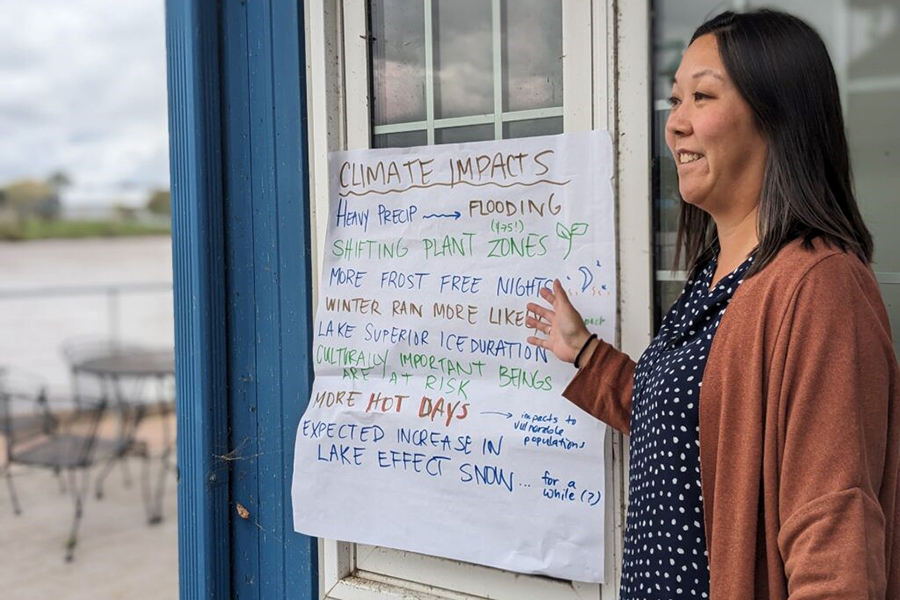TYPE
TOPIC
A program for community leaders in northern Wisconsin who are looking for ways to address climate change is available through Wisconsin Sea Grant and the Lake Superior National Estuarine Research Reserve.
The Lake Superior Climate Champions Program began provides a yearlong opportunity for community teams to work on a goal of their choosing that addresses climate change, with a minimum of $2,500 in funding, guidance from Sea Grant and Reserve staff members and the chance to connect with other communities working on climate challenges. The program completed its first successful cohort last year and is seeking applicants for a new round of support in 2024.
Participating teams of two to four people must be from one of the four coastal counties (Douglas, Bayfield, Ashland or Iron) and may include representatives from multiple jurisdictions. The teams can include community members in decision-making roles, such as tribal or county government staff, elected officials, members of local boards and committees or regional intergovernmental committees.
“All across Lake Superior’s coastal communities, we feel the impacts of climate change firsthand,” said Karina Heim, coastal training program coordinator with the Lake Superior Reserve. “Finding time and the capacity to address climate issues can be a challenge for local leaders. Our Climate Champions Program offers dedicated, yearlong support for climate work.”
Teams who want to participate need to apply online by March 15. Teams will be selected by April and the program will begin in May.
The previous year’s projects included creating the outline of a coastal adaptation plan for Washburn and Ashland, Wisconsin, that focused on flood resilience, climate adaptation and a project priorities list; also, emergency managers from Ashland, Bayfield, Douglas and Iron counties developed an online form to record road maintenance activities for Great Lakes coastal counties in Wisconsin.
Applicants are encouraged to seek support for a new climate resilience effort that is relevant to their community. This could include developing a new resource or tool, initiating an assessment, bringing people together in dialog or developing a specific climate plan.
Other possible project examples include: finding and using an assessment or planning tool to prepare for climate challenges (flooding, public health, etc.), planning a workshop or a facilitated process that allows for climate change learning and dialog and incorporating climate change considerations into an existing project or process, such as land-use planning or stormwater management.
